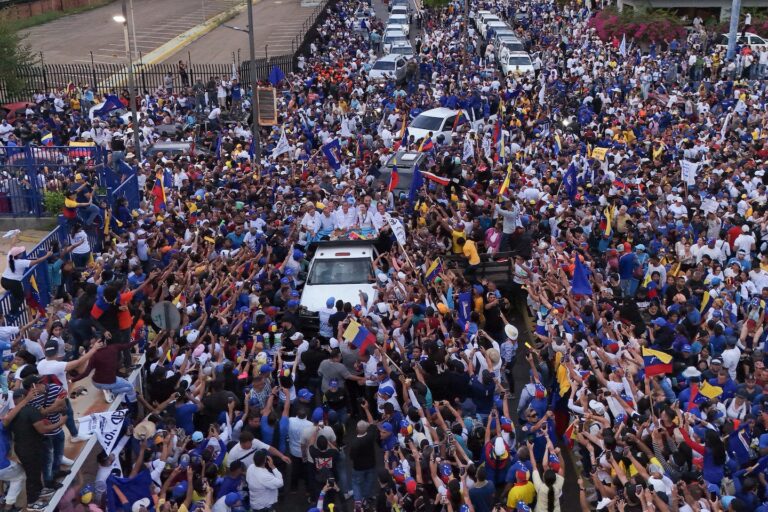Maduro has barred opposition-chosen candidates, arrested campaign workers and cut off access to state media. The opposition claims they can win by a landslide.
However, the Election Commission, the courts, and The military is controlled by Mr. Maduro, but the election outcome remains uncertain. Mr. Maduro and his team are confident of victory, according to people familiar with government conversations. It is unlikely he would willingly cede power if he lost the election.
“The key word that defines Venezuela’s elections is uncertainty,” pollster Luis Vicente Leon said.
The opposition is betting that it can boost voter turnout. A resounding victory would likely force Maduro to accept the results and begin negotiating his departure, and the U.S. could play a key role by offering legal incentives or sanctions relief to help Maduro escape without heading straight to prison.
A senior Biden administration official, speaking on condition of anonymity in accordance with rules set by the administration, said Friday that the U.S. was open to “consider steps to facilitate a peaceful transition of power.”
A defeat for Maduro would be a major foreign policy victory for the Biden administration. U.S. officials negotiated a deal last year in which Maduro committed to holding competitive elections in exchange for some easing of sanctions. With illegal immigration becoming a focal point of the U.S. presidential election, a victory in Venezuela could bolster Vice President Harris’ fight against former President Donald Trump.
Venezuela’s opposition candidate, former diplomat Edmundo Gonzalez, was unknown to most Venezuelans until just a few months ago. Now, opinion polls predict he could beat Maduro by double digits. He replaces Maria Corina Machado, a longtime critic of Maduro who has been dubbed the “Iron Lady” and who has drawn tens of thousands of Venezuelans to her almost messianic campaign caravans, but who was disqualified from running by Maduro’s Supreme Court.
Her campaign is focused on a simple message: “Vote for us and your loved ones can come home.”
“The central theme is family and the awareness that this may be the last chance to reunite families,” Machado told The Washington Post. “This is not just a campaign. It’s a relief campaign for liberation.”
The road to the elections has been far from free and fair: The European Union observers who had been scheduled to monitor the vote were disinvited, leaving only a small team of observers from the Atlanta-based Carter Center, a UN panel of experts, and a grassroots group of several thousand Venezuelans trained to monitor polling stations.
Machado last week urged people to vote early, stay close to their polling stations and report any suspicious activity to the opposition. “We’re all going to be citizen reporters,” she said.
Davis Salazar, a former firefighter from Venezuela who lives in Canada, returned home to vote.
“The people have woken up. After 25 years of robbing and destroying our people,” said Salazar, 65. “If you want change, you need to go vote. If not, you’re going to continue doing the same thing.”
Venezuelans are watching closely to see how the military responds to attempts to rig the election.
Opposition leader Leopoldo Lopez said military personnel should consider their own interests, “their own stability, their own future.”
“If Edmundo were to take power today, a transition could be a source of stability rather than Maduro ordering people to go out and kill, repress and impose the state,” he said.
Maduro has warned that a defeat would result in “bloodshed”.
“The fate of Venezuela depends on our victory,” the president told rallies earlier this month. “If we want to avoid fascist bloodshed and a fraternal civil war, we must guarantee the greatest electoral victory in our history.”
Maduro’s Defense Minister, Vladimir Padrino Lopez, said last week that the law would be respected. “Whoever wins, heads the government’s program. Whoever loses, rest in peace. That’s it,” he said.


